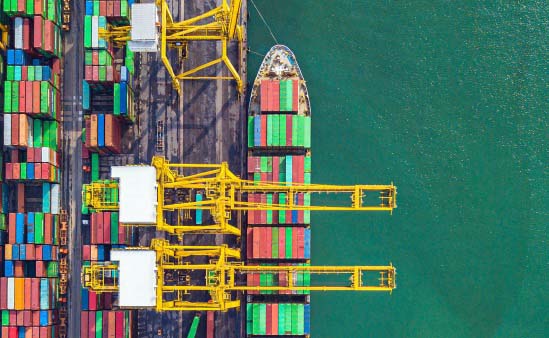To serve as many ports and customers as possible, as efficiently as possible, international ocean carriers often share space on vessels, a practice which has benefited the EU through the Consortia Block Exemption Regulation (CBER), which expires in April 2024 and is now under review by the European Commission’s DG COMP.
Shipowner organisations World Shipping Council (WSC), International Chamber of Shipping (ICS), and Asian Shipowners’ Association (ASA) have submitted their input to the European Commission, calling for a renewal of the CBER and demonstrating how vessel sharing contributes to the EU policy goals of reducing transport emissions, increasing competitiveness and improving efficiency to reduce costs.
Vessel sharing is a purely operational measure that enables carriers to use ships more efficiently whilst continuing to compete on price and other commercial terms. Vessel sharing expands the range of destinations and services available to customers and reduces empty space onboard ships, lowering emissions. The CBER facilitates vessel sharing by providing a sector-specific legal framework.
Yuichi Sonoda, Secretary General, ASA, said: “From an operational and environmental perspective, vessel sharing is like public transport and car-pooling schemes: seeking to maximise efficiency and reduce emissions through the shared use of transport assets and infrastructure, significantly reducing emissions per unit of cargo transported.”
The Commission’s evaluation of the CBER takes place against the backdrop of an unprecedented global crisis. Covid-19 disrupted the intermodal supply chain worldwide, creating substantial bottlenecks at marine terminals, inland warehouses and distribution centres, and in the truck, rail, and barge systems that connect ports with the hinterland. Those landside issues in turn caused back-ups of ships outside of ports, significantly reducing the effective vessel capacity even as ocean carriers deployed every available owned and chartered containership. Reliability suffered and prices increased.
John Butler, President and CEO, WSC, said: “The frustration that shippers have understandably experienced from service delays and increased cost has been channelled towards carriers, their vessel sharing arrangements, and the regulatory tools which facilitate such arrangements, including the CBER. But data shows and regulators concur that the problems were caused by factors outside carriers’ control and not by vessel sharing.”
Guy Platten, ICS Secretary General said: “Vessel sharing is a tool that has been recognised by regulators around the world as providing a foundation for the reliable movement of international trade. As we come out of the pandemic and markets normalize, we need common and predictable regulations across the globe in order to help transportation and trade networks to stabilise.”
The CBER is considered an essential regulatory tool that yields significant benefits to the EU, with no downside from a competition or consumer welfare perspective. ICS believes that the EC should uphold the CBER, to ensure continued efficient and competitive ocean transport for European shippers and consumers, while meeting climate goals.



